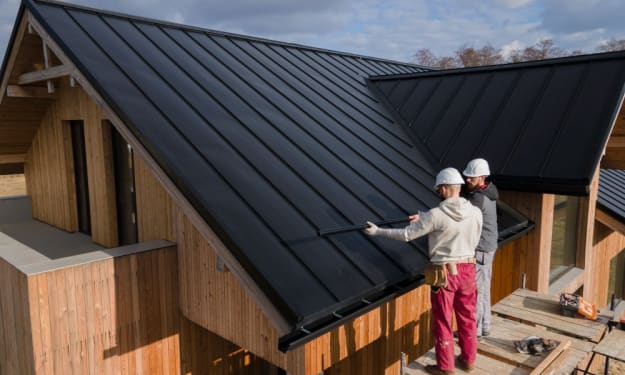How to Choose the Right Electrical Control Panel for Your Industrial Needs?
Electrical Control Panel

Importance of Choosing the Right Electrical Control Panel
Industrial operations rely heavily on electrical control panels to ensure smooth functioning and safety. These panels are responsible for regulating and controlling various electrical systems, such as power distribution, motor control, and process automation. Choosing the right control panel is crucial to avoid operational disruptions, prevent electrical hazards, and optimize efficiency.
When it comes to selecting an electrical control panel, one size does not fit all. Each industry has unique requirements, and understanding these needs is the first step in making an informed decision. By investing time and effort into evaluating your specific industrial needs, you can minimize the risks associated with choosing the wrong panel and maximize the benefits it brings to your operations.
Understanding your Industrial Needs
Before diving into the selection process, it's important to assess your industrial needs thoroughly. Start by identifying the purpose of the control panel. Is it for a manufacturing plant, power distribution center, or process automation? Each application requires different functionalities and specifications. Additionally, consider the power requirements of your operations. Understanding the voltage, current, and load capacity will help you determine the appropriate size and type of control panel.
Next, evaluate the environmental conditions in which the control panel will be installed. Factors such as temperature, humidity, and dust levels can impact the performance and lifespan of the panel. If your operations involve hazardous locations, such as areas with explosive gases or flammable materials, you must ensure that the control panel meets the necessary safety standards.
Factors to Consider When Choosing an Electrical Control Panel
Choosing an electrical control panel involves a careful evaluation of several factors. Here are some key considerations to keep in mind:
1. Functionality and Features
Different control panels offer varying levels of functionality and features. Consider the specific tasks you need the panel to perform. For example, if you require motor control, look for panels that offer motor starters, variable frequency drives, and soft starters. If you need to monitor and control multiple processes, opt for panels with programmable logic controllers (PLCs) and human-machine interfaces (HMIs). Assessing your requirements will help you determine the necessary features and functionality.
2. Scalability and Expansion Options
Industrial operations often evolve and expand over time. It is important to choose a control panel that can accommodate future growth. Look for panels that offer scalability and expansion options, such as additional input/output modules or communication interfaces. This will save you from the hassle and cost of replacing the entire panel as your needs change.
3. Compliance with industry standards
Electrical control panels must adhere to specific industry standards and regulations to ensure safety and reliability. Familiarize yourself with the relevant standards for your industry, such as UL 508A for industrial control panels or NEC (National Electrical Code) requirements. Make sure the control panel you choose is compliant with these standards to avoid any legal or safety issues.
4. Integration with existing systems
Consider how the new control panel will integrate with your existing systems. Compatibility with your current equipment, software, and communication protocols is crucial to avoid compatibility issues and ensure seamless integration. Consult with your IT and engineering departments to ensure compatibility and minimize disruption during the installation and commissioning process.
5. Support and technical assistance
Choose a control panel from a manufacturer that offers reliable support and technical assistance. In case of any issues or troubleshooting needs, having access to knowledgeable experts will save you time and money. Look for manufacturers with a reputation for excellent customer service and a strong network of service providers in your area.
Different Types of Electrical Control Panels
Electrical control panels come in various types, each designed for specific applications. Understanding the different types will help you choose the right panel for your industrial needs. Here are some common types of control panels:
1. Motor Control Centers (MCCs)
Motor Control Centers are used for controlling and protecting electric motors. They typically contain motor starters, circuit breakers, and other protective devices. MCCs are commonly used in industries such as manufacturing, oil and gas, and wastewater treatment plants.
2. Power Distribution Panels
Power Distribution Panels are responsible for distributing electrical power to various loads within a facility. They consist of circuit breakers, transformers, busbars, and other components. Power Distribution Panels are often found in commercial buildings, data centers, and industrial facilities.
3. Programmable Logic Controllers (PLCs)
PLCs are versatile control panels that offer automation capabilities. They are used to monitor and control various processes and equipment in industries such as manufacturing, water treatment, and food processing. PLCs can be programmed to perform complex tasks and are often integrated with HMIs for user-friendly operation.
4. Human-Machine Interfaces (HMIs)
HMIs provide the interface between operators and control systems. They allow users to monitor processes, control equipment, and receive real-time data. HMIs are commonly used in industries where operators need to interact with control systems, such as manufacturing, energy, and transportation.
5. Control Desks and Consoles
Control Desks and Consoles are custom-built panels that house control switches, buttons, and displays. They are designed for applications that require operator interaction and control. Control desks are often found in industries such as power plants, chemical processing, and aerospace.
Common Features and Specifications to Look for
When selecting an electrical control panel, there are several features and specifications to consider. Here are some common ones:
1. Enclosure type and material
The enclosure of the control panel should be chosen based on the environmental conditions and level of protection required. Common enclosure materials include stainless steel, mild steel, and aluminum. Consider factors such as corrosion resistance, impact resistance, and protection against dust and water ingress.
2. Electrical components and wiring
Inspect the quality and reliability of electrical components used in the control panel. Look for reputable brands and ensure that the wiring and connections are properly labeled and organized. Poorly wired control panels can lead to electrical faults and safety hazards.
3. Safety features
Safety should be a top priority when selecting a control panel. Look for features such as short circuit protection, overload protection, and ground fault detection. Additionally, consider the presence of safety interlocks, emergency stop buttons, and lockout/tagout mechanisms to prevent accidents and ensure operator safety.
4. Communication capabilities
In today's interconnected world, control panels often need to communicate with other devices and systems. Look for panels that offer various communication options, such as Ethernet, Modbus, Profibus, or DeviceNet. This will allow you to integrate the control panel into your existing network infrastructure and enable remote monitoring and control.
5. Energy efficiency
Consider the energy efficiency of the control panel, especially if you have sustainability goals or cost-saving targets. Look for energy-efficient components, such as high-efficiency motors and variable frequency drives. Additionally, panels with power monitoring capabilities can help you identify energy consumption patterns and optimize energy usage.
Cost Considerations and Budgeting for an Electrical Control Panel
Cost is an important aspect to consider when choosing an electrical control panel, but it should not be the sole determining factor. While it may be tempting to opt for the cheapest option, compromising on quality can lead to higher maintenance and operational costs in the long run. Instead, focus on value for money by considering the following:
1. Total cost of ownership
Look beyond the initial purchase price and consider the total cost of ownership over the panel's lifespan. A higher-quality control panel may have a higher upfront cost but can save you money in terms of reduced maintenance, increased reliability, and longer lifespan. Consider factors such as energy efficiency, maintenance requirements, and the availability of spare parts.
2. Return on investment (ROI)
Evaluate the potential ROI of the control panel by considering the operational benefits it brings to your industrial operations. Will it improve productivity, reduce downtime, or enhance safety? Calculate the potential savings or revenue generation resulting from these improvements to determine the true value of the control panel.
3. Budget allocation
Allocate a realistic budget for the control panel based on your industrial needs and financial capabilities. Consider factors such as the complexity of your operations, the criticality of the control panel, and the potential impact of downtime. Consult with your finance department to ensure that the allocated budget aligns with your organization's financial goals and constraints.
Installation and Maintenance of Electrical Control Panels
Installing and maintaining an electrical control panel requires careful planning and execution. Here are some tips to ensure a smooth installation and minimize maintenance issues:
1. Proper installation and grounding
Follow the manufacturer's guidelines for installation and ensure that the control panel is mounted securely. Improper installation can lead to loose connections, electrical faults, and safety hazards. Proper grounding is essential to protect against electrical shocks and ensure the panel functions correctly.
2. Routine inspections and preventive maintenance
Schedule regular inspections and maintenance to identify and address any potential issues before they escalate. Follow the manufacturer's recommended maintenance schedule and perform tasks such as cleaning, tightening connections, and checking for signs of wear or corrosion. Regular maintenance will prolong the lifespan of the control panel and minimize downtime.
3. Employee training and documentation
Train your employees on the proper operation and maintenance procedures for the control panel. Provide them with comprehensive documentation, including manuals, schematics, and troubleshooting guides. Well-trained employees will be able to identify and report any abnormalities or potential issues, reducing the risk of accidents or equipment failures.
4. Engage with a qualified service provider
If you lack the in-house expertise or resources to handle control panel installation and maintenance, consider engaging a qualified service provider. They can ensure that the panels are installed correctly and provide ongoing maintenance and support. Choose a service provider with experience in your industry and a track record of reliable service.
About the Creator
Jason Sky
Hey, I am Jason Sky, and I'm an electrical engineer with over a decade of experience in the field. I'm proud to say that I've played a key role in many significant projects over the years.
Enjoyed the story? Support the Creator.
Subscribe for free to receive all their stories in your feed. You could also pledge your support or give them a one-off tip, letting them know you appreciate their work.






Comments
There are no comments for this story
Be the first to respond and start the conversation.